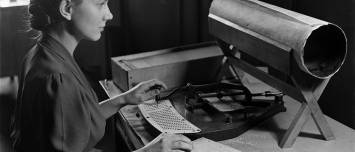About
With a bind variable, the value is passed atomically.
If you pass the value 1, 2 in a IN comparison operator, PL/SQL will try to find the value 1, 2 and not the value 1 and the value 2.
Articles Related
Example
With one value
With one value, the bind variable will do its works.
DECLARE
TYPE recId IS RECORD ( id NUMBER);
TYPE typeCursor IS REF CURSOR;
cur typeCursor;
curRow recId;
sql_stmt varchar2(400);
BEGIN
sql_stmt := '
select * from
(
select 1 as id from dual
union all
select 2 from dual
)
where
id in (:1)';
OPEN cur FOR sql_stmt USING '1'; -- I want id in 1
LOOP
FETCH cur INTO curRow;
EXIT WHEN cur%NOTFOUND;
DBMS_OUTPUT.PUT_LINE('Id: ' || curRow.id);
END LOOP;
CLOSE cur;
END;
/
anonymous block completed
Id: 1
With two values
But with two values, the bind variable mechanism will consider that it's one value and will return no value
DECLARE
TYPE recId IS RECORD ( id NUMBER);
TYPE typeCursor IS REF CURSOR;
cur typeCursor;
curRow recId;
sql_stmt varchar2(400);
BEGIN
sql_stmt := '
select * from
(
select 1 as id from dual
union all
select 2 from dual
)
where
id in (:1)';
OPEN cur FOR sql_stmt USING '1,2'; -- I want id in 1 and in 2
LOOP
FETCH cur INTO curRow;
EXIT WHEN cur%NOTFOUND;
DBMS_OUTPUT.PUT_LINE('Id: ' || curRow.id);
END LOOP;
CLOSE cur;
END;
/
anonymous block completed
Solution
One solution for now, is:
- to create the dynamic sql statement with two binds variables
- or to create the statement dynamically with concatenation and without bind variable.
DECLARE
TYPE recId IS RECORD ( id NUMBER);
TYPE typeCursor IS REF CURSOR;
cur typeCursor;
curRow recId;
sql_stmt varchar2(400);
BEGIN
sql_stmt := '
select * from
(
select 1 as id from dual
union all
select 2 from dual
)
where
id in (:1' || ',:2)';
OPEN cur FOR sql_stmt USING '1','2';
LOOP
FETCH cur INTO curRow;
EXIT WHEN cur%NOTFOUND;
DBMS_OUTPUT.PUT_LINE('Id: ' || curRow.id);
END LOOP;
CLOSE cur;
END;
/
anonymous block completed
Id: 1
Id: 2
